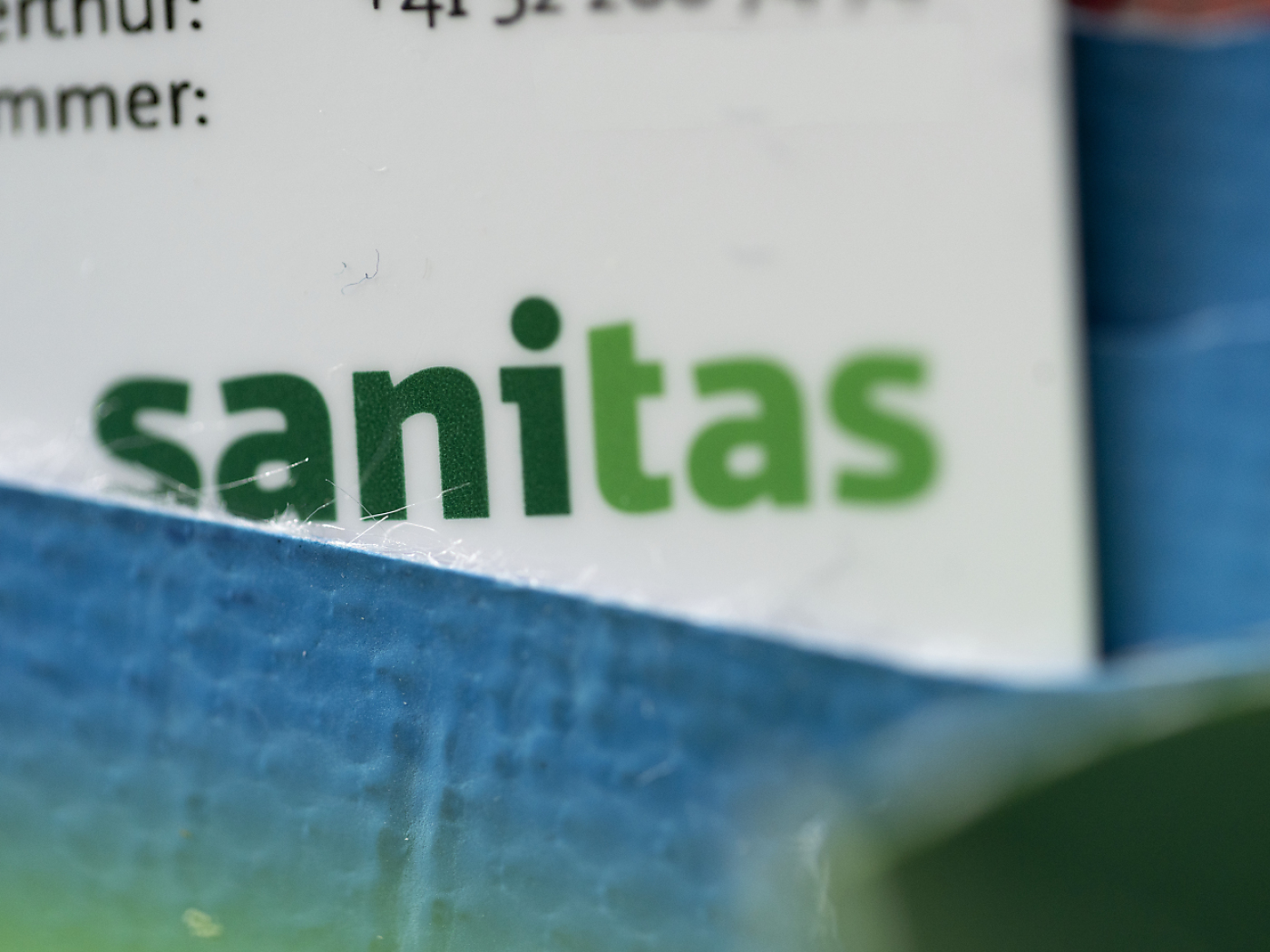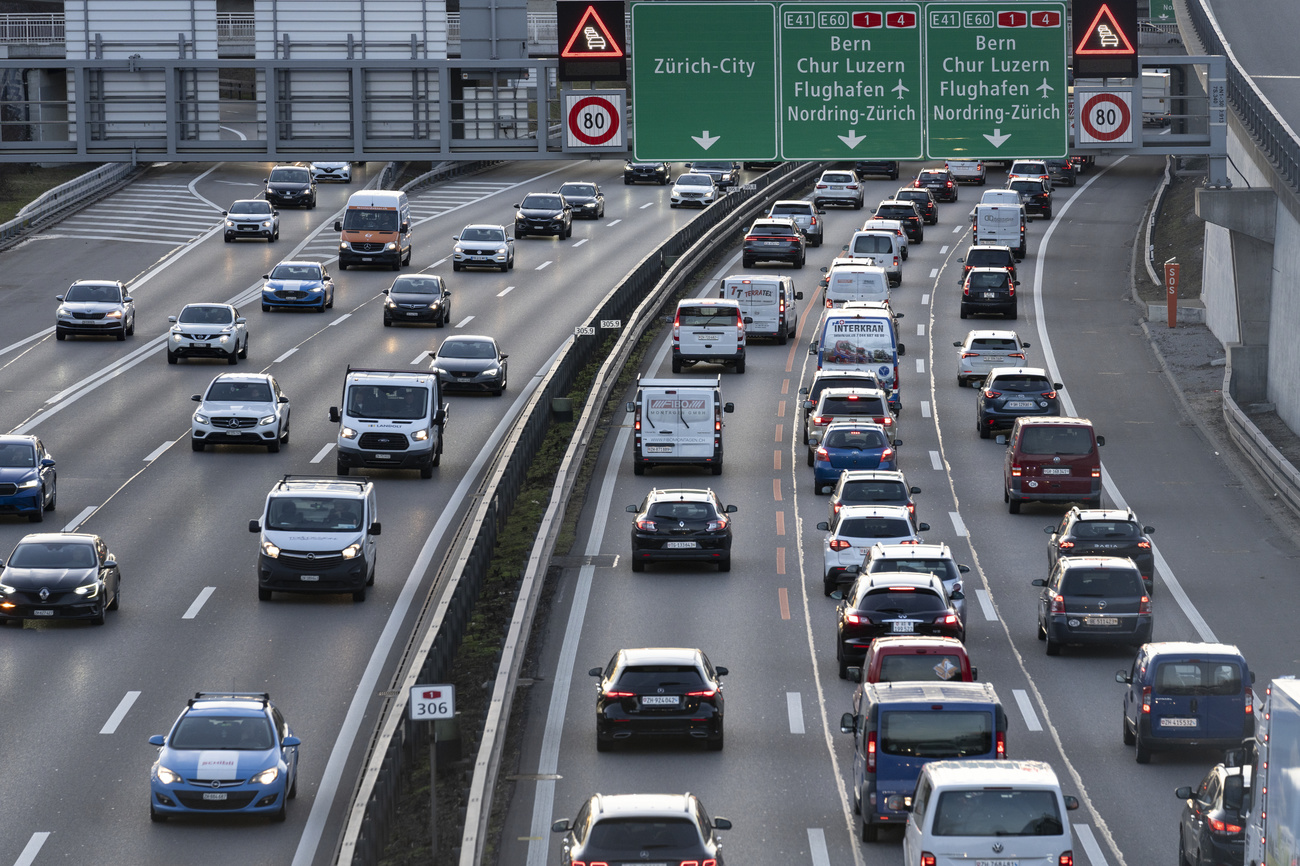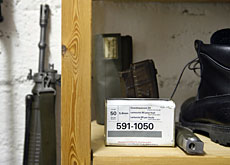Thousands of army guns are lost

More than 4,300 army guns have been lost or stolen over the past decade, the Swiss defence ministry has confirmed.
The statistics come as calls mount for a ban on military weapons being stored at home by members of Switzerland’s 120,000-member conscript army.
Defence ministry spokesman Felix Endrich has confirmed a report that appeared in Sunday’s Le Matin Dimanche newspaper that the guns had been stolen or lost outside military service. In addition, around 260 have been reported stolen and then recovered.
Assault rifles disappeared the most frequently, followed by pistols, according to the defence ministry.
Weapons are also lost or stolen during service, but this is much more rare, Endrich said. Since 2005 this has been around ten per year, apart from in 2006.
In that year 82 rifles were stolen from an army depot in Marly in French-speaking Switzerland, bringing the 2006 total to 84 rifles plus 15 pistols.
Endrich told the Swiss news agency that the army did not keep statistics that made a distinction between lost or stolen weapons. Those that simply disappear are categorised as lost, he said.
Under Swiss law, all able-bodied men aged 20-30 are conscripted for about three months and are issued with a rifle. They are required to do up to four weeks of army service a year until they have served 260 days or are aged 34.
Throughout this time they keep the rifles – but no ammunition – at home. According to some estimates there could be as many as 1.5 million army weapons in circulation.
Gun debate
Questions have already been raised in the country over whether the practice should be continued.
Those against it point to the fact that army-issue weapons are said to be involved in the deaths of more than 300 people a year in the country.
Parliament last year banned the keeping of ammunition at home. But centre-left Social Democratic Party and pacifist organisations have gone further and launched a people’s initiative to ban army guns and rifles at home.
They want these weapons to remain in the barracks and a national gun register set up, arguing that keeping guns at home no longer has a military purpose.
But opponents – including the strong gun lobby – argue that decommissioning weakens Swiss security and is a vote of no confidence in soldiers.
For Nuria Goritte, a Vaud cantonal parliamentarian, the disappearing weapons add to arguments that arms should be stored in arsenals.
“If it is not made obligatory to put arms in an arsenal, it could at least be made possible to store them there. Not everyone has the means to put arms in a safe place at home,” she was quoted in Le Matin Dimanche as saying.
At the beginning of this year canton Geneva introduced a pioneering initiative allowing soldiers living there to store their army guns free of charge at the cantonal arsenal. The move is being closely watched by other cantons.
According to Le Matin Dimanche only around 60 weapons have been handed in so far. However, the Geneva authorities insist that the initiative simply needs time.
swissinfo with agencies
In September 2007, parliament banned the long-standing tradition of allowing all enlisted men to keep their ammunition at home. Ammunition held by militia soldiers must now be handed back to the army.
Also in September, the centre-left Social Democratic Party and pacifist organisations launched a people’s initiative to ban the estimated one-and-a-half million guns and rifles kept at home.
The initiative includes a call for army weapons to remain in the barracks and a national gun register.
Five years ago Switzerland was stunned when a gunman shot and killed 14 people in Zug’s cantonal parliament with a rifle, before turning the gun on himself.
Debate on the use of firearms was further fuelled in April 2006 when the husband of former women’s ski champion Corinne Rey-Bellet killed his wife and her brother with his army pistol.

In compliance with the JTI standards
More: SWI swissinfo.ch certified by the Journalism Trust Initiative










You can find an overview of ongoing debates with our journalists here . Please join us!
If you want to start a conversation about a topic raised in this article or want to report factual errors, email us at english@swissinfo.ch.